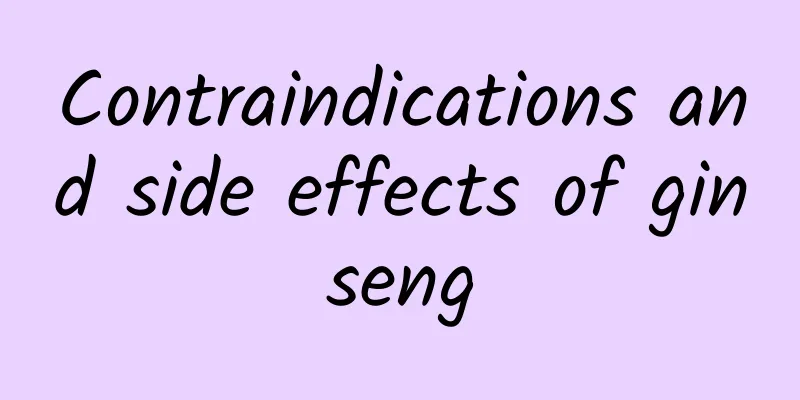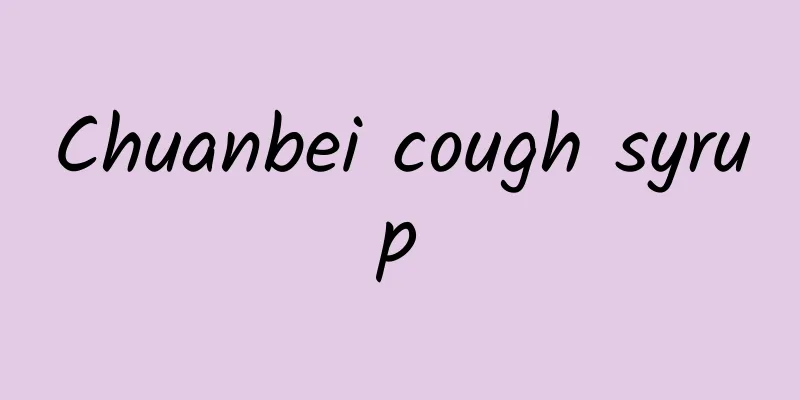Contraindications and side effects of ginseng

|
Wild ginseng is a traditional nourishing Chinese medicinal material. It is not only precious, but also contains very high nutritional value. From the perspective of traditional Chinese medicine, wild ginseng is warm in nature. After consumption, it has a very good nourishing effect on the lungs/heart and kidneys. It has the effects of calming the mind and nourishing blood, as well as replenishing qi and blood nerves, and health care for the spleen and lungs. However, there are also taboos in eating ginseng. The details are as follows! Taboos on taking wild ginseng 1. Wild ginseng cannot be eaten with red grapes Professionals believe that red grapes cannot be eaten with wild ginseng, because red grapes contain a certain amount of tannins. Substances such as tannins will combine with proteins to form a precipitation. This precipitation will affect the body's digestion and absorption of the nutrients in wild ginseng, and will cause serious damage to the nutrients contained in wild ginseng. 2. Do not eat radish or seafood after eating ginseng Because radish has the effect of aiding digestion and promoting diuresis, and wild ginseng is a traditional Chinese medicine for nourishing the vital energy, you cannot eat radish after taking wild ginseng. Radish includes several types of radishes such as carrots and radishes. In addition to radish, you cannot eat ginseng directly after taking ginseng, otherwise it will affect the medicinal effect and destroy the nutritional value of wild ginseng. 3. Do not drink tea after eating You cannot drink tea immediately after eating wild ginseng, because tea contains a substance called theanine, which will react with wild ginseng, which will destroy the nutritional value of wild ginseng and affect its nourishing and health-preserving effects. 4. Do not take it when you have a cold or fever During the fever process, the human body will experience palpitations. Therefore, after taking wild ginseng, the body's blood circulation rate will accelerate, aggravating the symptoms of palpitations and fever, which is not conducive to the recovery of the symptoms. Eating ginseng is not suitable for groups 1. Patients with fever and healthy Qi should not take this medicine. Wild ginseng replenishes qi and blood, and is not suitable for people with normal qi. 2. People with cold and fever Do not take wild ginseng when you have a cold or fever. Wild ginseng has a strong tonic effect. If you take wild ginseng when the external evil is not cleared, it is easy to cause the enemy to stay inside, which is not conducive to the recovery of fever and cold. 3. People with renal insufficiency Wild ginseng has a diuretic effect and can easily reduce the burden on kidney function. It should not be used by people with renal insufficiency. 4. Cancer patients In most cases, wild ginseng can increase the body's metabolism. However, in addition to stimulating the body's normal tissue metabolism, wild ginseng also has the effect of increasing the metabolism of tumor cells, greatly increasing the proliferation ability of tumor cells. It cannot be used by cancer patients. 5. Patients with cholecystitis and gallstones Wild ginseng is not good for the bile duct and can easily cause the bile to thicken. 6. People with cardiovascular and cerebrovascular diseases The protein content in wild ginseng can inhibit fat burning and increase the accumulation of lipids in blood vessel walls. Such patients should be cautious when taking wild ginseng; at the same time, wild ginseng has the effect of promoting the growth of blood cells, increasing red blood cells, and higher blood viscosity, which is not good for these conditions. 7. Insomnia patients Wild ginseng has a central nervous system stimulating effect. For patients with stomach problems, taking wild ginseng may aggravate insomnia. 8. Children and adolescents Wild ginseng can easily cause premature maturity and the appearance of secondary sexual characteristics before the age of 18. Side effects of eating ginseng 1. People with strong physique may get angry easily after taking it In fact, a strong physique means a person with good physical fitness and a more energetic mental outlook. Since wild ginseng has a strong tonic effect, people with strong physical fitness and no weak conditions do not need to take tonics. Indiscriminate use of tonics usually causes getting angry, holding breath, and symptoms such as chest tightness, shortness of breath, and abdominal distension. 2. Excessive use can cause excitement No matter what food it is, especially Chinese medicinal materials, you must be careful not to take too much. Due to excessive use of wild ginseng, most people will experience excitement and excitement symptoms such as excitement, dizziness, throat irritation, insomnia, neurasthenia, hypertension, euphoria, etc. 3. Allergic symptoms may lead to poisoning In addition, there are some people who are born with skin allergies to certain substances and need to pay attention. Because people are more sensitive to the effects of ginseng, they may experience food poisoning symptoms after taking a lot of wild ginseng, mainly manifested as rash all over the body, fever, headache, dizziness, and in severe cases, it may cause convulsions, seizures, or even death by bleeding. 4. Not suitable for use by people under 18 years of age Minors also need to pay attention to their diet during the growth and development period, and some foods are not suitable for them. Therefore, if minors take ginseng as a tonic, it is very easy to cause precocious puberty in minors, early menarche in girls, early beard growth and penis enlargement in boys, and even breast development in men. |
<<: How to eat Phellinus igniarius
>>: The efficacy and function of natural agarwood
Recommend
Is it scientific to walk a hundred steps after a meal and live to 99?
In today's fast-paced life, being able to put...
Traditional Chinese medicine prescription for removing dampness
Excessive moisture in the body not only makes peo...
What is the appropriate water temperature for wolfberry soaking
We all know that the saying of "wolfberry fo...
The efficacy and function of chrysanthemum notoginseng
When it comes to Chrysanthemum Notoginseng, we ar...
The efficacy and function of Arisaema
After thousands of years of sedimentation and acc...
Twenty-five-flavor Guiju Pills
Medicine is very common in our life. There are ma...
Medicinal value of green peel
Green peel is the peel of unripe citrus fruits. I...
It must have an unknown side to it that flutters in the wind
Willow leaf: Willow leaf has the effects of clear...
There is a vertical line on the stomach
When people observe their bodies carefully, they ...
International Museum Day丨Amazing! Take a look at these fashion items of the ancients
To create a sense of fashion, exquisite small ite...
In addition to making currency, "coin metal" actually has these wonderful uses
On October 17, 2024, Zang Shuangquan, Vice Presid...
The efficacy and function of Ma Mei Tiao Ye
Ma Mei Tiao Ye is a kind of Chinese herbal medici...
Which organs in your body are evolutionary remnants? I guess you don’t know!!
Excerpted from: Inside and Outside the Classroom ...









